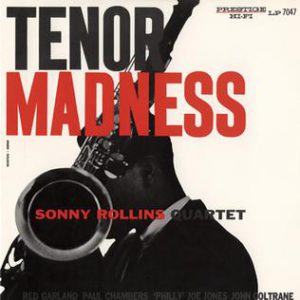 Hey, Jazz fans! Be sure to tune in this week as we celebrate the birthdays of clarinetist/bandleader Artie Shaw, pianist/bandleader Sun Ra, singers Rosemary Clooney and Peggy Lee, trumpeter Miles Davis, bassist Max Bennett, organist Charles Earland, reedman Ken Peplowski and more. We’ll also mark the recording anniversaries of Sonny Rollins’ “Tenor Madness” (1956), Stan Getz’ “Getz Au Go Go” (1964), Cal Tjader’s “The Great Cathedral Concert” (1976), Ray brown Trio’s “Black Orpheus” (1989), Monty Alexander “Live at the Iridium” (2004) and many others 10am to 2pm, Monday thru Friday, with Jazz Masters at noon.
Hey, Jazz fans! Be sure to tune in this week as we celebrate the birthdays of clarinetist/bandleader Artie Shaw, pianist/bandleader Sun Ra, singers Rosemary Clooney and Peggy Lee, trumpeter Miles Davis, bassist Max Bennett, organist Charles Earland, reedman Ken Peplowski and more. We’ll also mark the recording anniversaries of Sonny Rollins’ “Tenor Madness” (1956), Stan Getz’ “Getz Au Go Go” (1964), Cal Tjader’s “The Great Cathedral Concert” (1976), Ray brown Trio’s “Black Orpheus” (1989), Monty Alexander “Live at the Iridium” (2004) and many others 10am to 2pm, Monday thru Friday, with Jazz Masters at noon.
This Week In Jazz May21 thru May 27
This Week’s Shows May 21 thru May 27
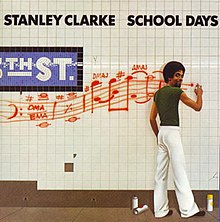 Jazz Corner of the World with host Craig Kessler
Jazz Corner of the World with host Craig Kessler
Mondays from 6:00pm to 10:00pm
The Artistry of Stanley Clarke
Craig invites us to join in on the fun as he spins a fine sampling from Stanley Clarke’s stellar 50-year career. We’ll hear from his many albums as a leader, as well as great work with Chick Corea, Stanley Cowell, George Duke, Tony Williams, Flora Purim, Airto, and others.
The Wednesday Night Special
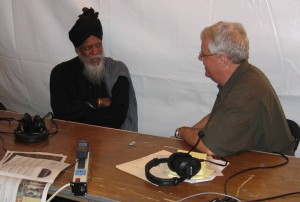
Dr. Lonnie Smith with KCCK Program Director Bob Stewart backstage at the 2010 Iowa City Jazz Festival
Wednesdays at 6:00pm
Dr. Lonnie Smith at the ICJF
Organ master Dr. Lonnie Smith took the Iowa City Jazz Festival main stage in 2013. As we get closer to the 2023 Jazz Festival, we’re re-listening to this standout set from a true jazz legend.
 Jazz Night in America
Jazz Night in America
Thursdays at 11:00pm
Helen Sung’s Jazz Dreams
Host Christian McBride continues his celebration of Asian American and Pacific Islander Heritage Month. This week, he visits with pianist Helen Sung. She reflects on how she stuck to her jazz dreams even as she trained in classical music. We’ll also hear from her new thematic work for quartet, based on her emotions on social justice.
Jazz Corner of the World with Host Craig Kessler
Saturdays from 12 noon to 4:00pm
Miles Davis in the 1940s
Don’t miss this episode as Craig celebrates Miles Davis’s birth date anniversary with an in-depth look at Davis’s early days. We’ll hear his work with Charlie Parker, Benny Carter, Billy Eckstine, Coleman Hawkins, Tadd Dameron, and others.
KCCK’s Midnight CD
Every Night at Midnight
Each night, KCCK lets you hear a new CD played start-to-finish.
Big Band Trax by Wax: the Music of Michael Weatherwax by Kupkasonic Jazz Orchestra on Monday; Time Flies by Steve Smith & Vital Information on Tuesday; Exactly Right! by Louis Hayes on Wednesday; In Real Time by Artemis on Thursday; Everybody’s Buddy by Nic Clark on Friday; Far Enough by Jimmie Bratcher on Saturday; Of What Remains by the Melissa Pipe Sextet on Sunday.
Saul with Laurence Hobgood
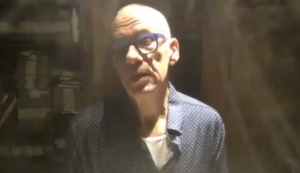 KCCK’s Saul Lubaroff had a chance to talk with pianist Laurence Hobgood prior to Laurence and his trio performing at the Sound Conservatory Music Academy & Shoppe in Rock Island on May 28. More information and tickets are available by calling (309)373-0790 or visiting www.polyrhythms.org.
KCCK’s Saul Lubaroff had a chance to talk with pianist Laurence Hobgood prior to Laurence and his trio performing at the Sound Conservatory Music Academy & Shoppe in Rock Island on May 28. More information and tickets are available by calling (309)373-0790 or visiting www.polyrhythms.org.
Podcast (specials): Play in new window | Download
Subscribe: Apple Podcasts | RSS
Talking Pictures 5-17-23
Knock at the Cabin (2023), Time (2017) and Crater (2023) with Hollis Monroe, Phil Brown and Denny Lynch.
Podcast (talkingpics): Play in new window | Download
Subscribe: Apple Podcasts | RSS
Culture Crawl 817 “You’ll need 12 Fingers”
The final concert in Orchestra Iowa’s historic 100th season is “Nordic Passage,” featuring one of the world’s greatest living pianists, Garrick Ohlsson, performing his signature piece, Greig’s Piano Concerto.
Also on the program is one of Tim Hankewich’s all-time favorite symphonies by Sibelius, and a new commission by former UNI faculty member Nancy Cobb.
May 20, 7:30 at the Paramount, May 21 at 2pm at Hancher. Tickets and more info at artsiowa.com.
Subscribe to The Culture Crawl at www.kcck.org/culture or search “Culture Crawl” in your favorite podcast player. Listen Live at 10:30am most weekdays on Iowa’s Jazz station. 88.3 FM or www.kcck.org/listen.
Podcast (culturecrawl): Play in new window | Download
Subscribe: Apple Podcasts | RSS
Culture Crawl 816 “Music Returns To Greene Square!”
The Cedar Rapids Downtown District is looking to bring people back downtown for evening entertainment, and the first event is a big one.
“Blues Night in the Park” will feature the great Kevin B.F. Burt, along with regional Performas Mathias Lattin, KenValdez, and the Keesha Pratt Band. Food and drink from a variety of refreshment sponsors will be available, too.
Bring your own lawn chair and pay just $5 at the gate for an evening of classic blues. www.downtowncr.org for details.
Subscribe to The Culture Crawl at www.kcck.org/culture or search “Culture Crawl” in your favorite podcast player. Listen Live at 10:30am most weekdays on Iowa’s Jazz station. 88.3 FM or www.kcck.org/listen.
Podcast (culturecrawl): Play in new window | Download
Subscribe: Apple Podcasts | RSS
This Week’s Shows May 15 thru May 20
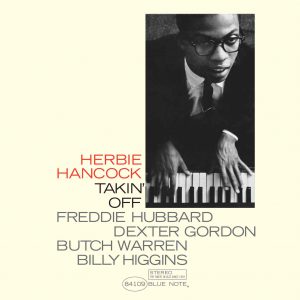 Jazz Corner of the World
Jazz Corner of the World
Mondays from 6:00pm to 10:00pm
Herbie Hancock on Blue Note, Show 2
Host Craig Kessler’s celebration of the 85th anniversary of Blue Note Records continues with more of Herbie Hancock’s contributions to the label. We’ll hear classic gems from Herbie as both a sideman and as a leader.
The Wednesday Night Special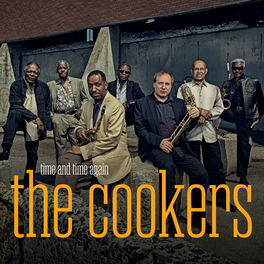
Wednesdays at 6:00pm
The Cookers at the ICJF
As we get ready for the 2023 Iowa City Jazz Festival, we’re revisiting some of the great artists who have taken the stage in Festivals past. This week, we hear jazz legends The Cookers and their 2017 set.
 Jazz Night in America
Jazz Night in America
Thursdays at 11:00pm
Linda May Han Oh’s Aventurine
To celebrate Asian American and Pacific Islander Heritage Month, host Christian McBride spotlights bassist and composer Linda May Han Oh, featuring live music from her Aventurine project.
Jazz Corner of the World
Saturdays from 12 noon to 4:00pm
The Artistry of Stanley Clarke
Host Craig Kessler invites us to join in on the fun as he spins a fine sampling from Stanley Clarke’s stellar 50-year career. We’ll hear from his many albums as a leader, as well as great work with Chick Corea, Stanley Cowell, George Duke, Tony Williams, Flora Purim, Airto, and others.
KCCK’s Midnight CD
Every Night at Midnight
Each night, KCCK lets you hear a new CD played start-to-finish.
Everything is Going to Be OK by GoGo Penguin on Monday; The Mary Lou Williams Resurgence Project, Volume 1: Small Ensemble Repertoire by Cecilia Smith on Tuesday; Resolution by Ken Fowser on Wednesday; Between the Bars by Behn Gillece on Thursday; Guitar Kingdom by Dudley Taft on Friday; Call It Confusion by Johnny King & Friends on Saturday; Truth Be Told by Angie Wells on Sunday.
This Week In Jazz May 14 thru May 20
 Hey, Jazz fans! Be sure to tune in this week as we celebrate the birthdays of bandleader Woody Herman, vibist Joe Roland, Blues shouter Big Joe Turner, singer Betty Carter, saxmen Dewey Redman and Jackie McLean, drummers Redd Holt and Billy Cobham and more. We’ll also mark the recording anniversaries of Kenny Burrell’s “Blue Lights” (1958), “Barry Harris at The Jazz Workshop” (1960), Oscar Peterson/Joe Pass/N.-H. Orsted Pederen’s “The Trio” (1973), Charles Earland’s “The Third Degree” (1989), Carol Morgan Trio’s “Opening” (2009), Scott Hamilton & Jeff Hamilton Trio “Live in Bern” (2014) and many others 10am to 2pm, Monday thru Friday, with Jazz Masters at noon on Jazz 88.3.
Hey, Jazz fans! Be sure to tune in this week as we celebrate the birthdays of bandleader Woody Herman, vibist Joe Roland, Blues shouter Big Joe Turner, singer Betty Carter, saxmen Dewey Redman and Jackie McLean, drummers Redd Holt and Billy Cobham and more. We’ll also mark the recording anniversaries of Kenny Burrell’s “Blue Lights” (1958), “Barry Harris at The Jazz Workshop” (1960), Oscar Peterson/Joe Pass/N.-H. Orsted Pederen’s “The Trio” (1973), Charles Earland’s “The Third Degree” (1989), Carol Morgan Trio’s “Opening” (2009), Scott Hamilton & Jeff Hamilton Trio “Live in Bern” (2014) and many others 10am to 2pm, Monday thru Friday, with Jazz Masters at noon on Jazz 88.3.
